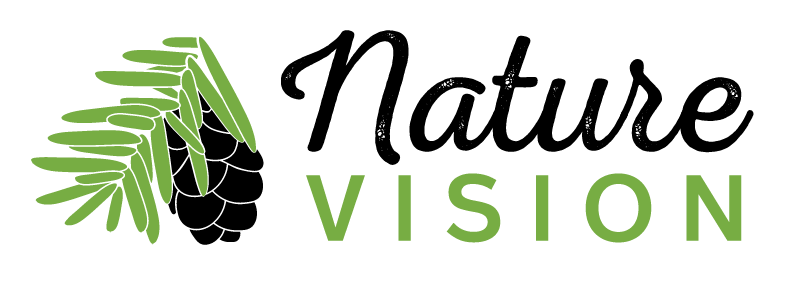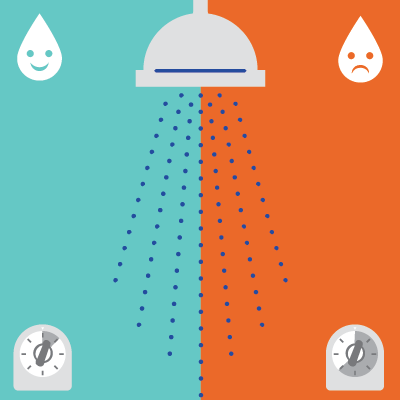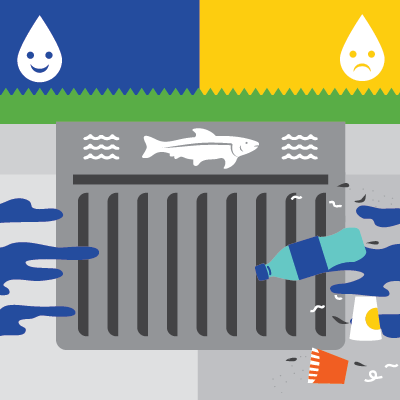Water Conservation Education Programs
For K-8 students
The Saving Water Partnership offers free water conservation classroom presentations taught by Nature Vision to schools in our service area.
All Programs:
• Support WA State K-12 Learning Standards and STEM Education
• Are interactive, hands-on, and inquiry-based
• Help students make personal connections to environmental issues
These programs are offered on a first come, first served basis. Please be aware that scheduling can fill up very quickly.
Learn about our different program offerings
* Programs with an asterisk are also available as a virtual program.
Elementary School Programs
K-3rd
*Water Cycle Terrariums (K-3)
Students will explore the water cycle, learn how water moves through the watersheds where our drinking water comes from, and actions we can all take to save water. In-person program activities include dancing to the water cycle boogie and making a terrarium (complete with a dinosaur!) that models the water cycle.
*Salmon Cycle (K-3)
Students are introduced to the unique life cycle of Pacific salmon, observe salmon eggs at various stages of development, and learn how saving water can benefit salmon. Program activities include demonstrating the salmon life cycle with puppets and working in teams to build a salmon redd (nest)!
Healthy Soil Saves Water (K-3)
Students will learn all about soil and discover how building healthy soil with compost can help save water. Program activities include hands-on exploration of organic material and the decomposers that live in soil—including the charismatic red wriggler worm!
4th-5th
*Will There Be Enough Water? (4-5)
Students will learn about the local watersheds that supply our drinking water - including the earth processes and human choices that impact our water supply. Program activities include answering the question, 'Will there be enough water?' by working in teams to model our water supply throughout the year under different conditions.
*Salmon Cycle (4-5)
Students are introduced to the unique life cycle of Pacific salmon, explore salmon’s important role as a keystone species in Pacific Northwest ecosystems, and learn how saving water can benefit salmon. Program activities include working in teams to map connections between salmon, humans, and the ecosystem we share.
Healthy Soil Saves Water (4-5)
Students will learn all about soil, its role supporting ecosystems and food webs, and discover how building healthy soil with compost can help save water. Program activities include a demonstration of water retention in different soil types and hands-on exploration of organic material and the decomposers that live in soil.
*Water Conservation Town Hall (4-5)
Students will learn that water is an important resource shared by individuals, communities, and ecosystems. Program activities include a mock town hall meeting where students will role-play different stakeholder groups trying to decide how to manage their community’s water resources.
*Water Cycles Round (4-5)
Students will review the water cycle, learn how water moves through the watersheds where our drinking water comes from, and actions we can all take to save water. Program activities include a game where students become water droplets and travel to all the places that water goes during the water cycle— rivers, clouds, oceans and more!
Middle School Programs
* Salmon Cycle (6-8)
Students review the unique lifecycle of Pacific salmon, explore salmon’s important role as a keystone species in Pacific Northwest ecosystems, and learn how saving water can benefit salmon. Program activities include using knowledge gained during the program to interpret an excerpt from the Puget Sound Salmon Recovery Plan and working in teams to map connections between salmon, humans, and ecosystems.
Soil Science and Water Conservation (6-8)
Students will learn about soil formation, how soil type affects plants, and discover how building healthy soil with compost can help save water. Program activities include working in teams to use scientific inquiry to test water retention in different soil types.
*Will There Be Enough Water? (6-8)
Students will learn about the local watersheds that supply our drinking water including the earth process and human choices that impact our water supply. Program activities include answering the question, 'Will there be enough water?' by working in teams to model our water supply throughout the year under different conditions. Students will also compare their conclusions to real-world data.
*Water Conservation Town Hall (6-8)
Students will learn that water is an important resource shared by individuals, communities, and ecosystems. Program activities include a mock town hall meeting where students will role-play different stakeholder groups trying to decide how to manage their community’s water resources.
The Saving Water Partnership is an organization comprised of 19 water utilities in King and Snohomish counties.
We offer tips, tools, and rebates to help people preserve our region’s water for future generations. When we work together to use water wisely, it adds up to make a big difference






